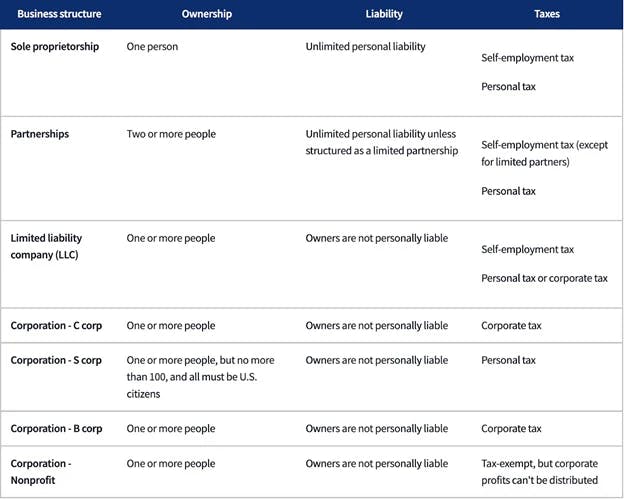Everything You Need To Know About Starting Your Own Business
Entrepreneurship is the hallmark of the American experience, yet it’s rarely taught at length to young adults. If you’ve ever thought about breaking free from the corporate 8-5 and starting your own business, here’s everything you need to know!

Tired of the 8-5 hustle, constantly answering to someone you don’t respect as a boss, and wanting to actually make an impact in the business scene? You’re not alone, especially if you happen to be 25 or younger.
Generation Z is well on our way to becoming the most entrepreneurial generation ever – with 62% of Gen Zers saying they have or intend to start their own business. Wow!
Be it founding an apparel company, becoming a full-time content creator, or inventing an app the world’s never seen before, America’s next generation is taking their future into their own hands and isn’t waiting for permission from someone else to turn their American Dream into a reality.
What’s even more telling that this may be the time for you to take the leap in starting your own business is this: in 2020, job dissatisfaction among Americans rose by 7.4%, and 51.1% – more than half – of us left our jobs in one calendar year.
If you’re ready to take a leap of faith, here’s everything you need to know about starting your own business.
Laying the Foundation of Your Business
First things first, solidify your idea. There’s no sense pouring your effort into something that’s already being done or you know won’t provide something unique to the market. Do some research into what other companies may be doing in a similar industry, and figure out how you can do it better. Building a business plan should come as a cinch after understanding who your competitors will be and how you will be providing something different to consumers. As you lay the foundation for your business to succeed by refining your idea, make sure to think of a catchy name for your business – you’ll need this for filing your business, reserving a domain name, and opening a bank account.
Once your idea has some color, it’s time to write a business plan. Start with researching the market you plan on entering: Who will your competitors be? Do you understand your target customer base? How much time do you have to devote to getting your business or product off the ground? Taking the time to answer these questions upfront will help you be successful once it’s time to actually launch. You can find free templates for writing a business plan here.
Research what other companies are doing in a similar industry, and figure out how you can do it better.
Having a holistic understanding of money is something you’ll want to do upfront too. Consider your financial capabilities at the onset of your business: What budget are you working with right now? Do you know what your startup costs will be? Is it necessary to borrow some money to help get things off the ground? Making a point to monitor all income and business expenses throughout the year will help you be financially aware of the status of your business, be prepared for tax season, and help you grow financially instead of going under.
Determining the Right Legal Structure
Once you’ve written up your business plan and made note of your financial capabilities, it’s time to determine the right legal structure for your new business. Choosing the right legal determination for your new business will determine how you file your taxes, your personal liability if something happens to go wrong, and more. There are several common paths to take, and the Small Business Administration (SBA) can help you decide which may be the right fit for you.
The SBA identifies sole proprietorships, partnerships, limited liability companies (LLCs), C corporations, S corporations, B corporations, and nonprofits as the most common legal structures for businesses. Here’s an easy-to-understand comparison:

Image Source: Small Business Administration
Registering Your Business
Now that you’ve determined the proper legal structure for your new business, it’s time to get filing and become official! As you transition from an idea to an official business, you’ll need to officially file in some capacity with every level of government – federal, state, and local.
You’ll need to kick things off by writing your articles of incorporation – a fancy name for a single document that outlines your business name, your purpose of business, the structure, etc. You can find a free template to write your own articles of incorporation here. This document will be used when you visit the website for your state’s Secretary of State, where you’ll submit all the necessary information to become a registered business.
You don’t necessarily need to live in the state you’re filing for business in, but you will need a local address to identify with the business. Consider what’s right for you and file in the appropriate place!
You’ll need to officially file your business in some capacity with every level of government.
Once you are a registered business, it’s time to apply for an Employer Identification Number (EIN) with the IRS. This is a free process and is not necessary for all business structures, but generally is helpful in keeping your personal and business taxes distinct from one another. The IRS has a handy checklist you can use to figure out if you need an EIN here.
Next come income tax forms, which you’ll need to file with your state and the federal government to properly fulfill tax requirements as a business. I know, I know, this is the boring part, but it’s very important to ensure your business remains in good standing and you don’t face prosecution later!
Purchasing an insurance policy is something that should also be on your radar, but it's something you can consider later on down the line when determining what’s right for you.
You can find your state’s official website here, where you can file your articles of incorporation, learn about tax obligations, and more for this important step in the process.
Get Your Business Out There!
The boring part’s over – now that you’re official, it’s time to get your business out there! Marketing is a key aspect of a successful business strategy and will determine the future of your company.
Now it’s time to reserve social media accounts, build a company website and reserve your domain name, and brand your business with a catchy logo. In the 2020s, in particular, having a strong digital and social presence will easily be the determinant of your business’ success.
Consider creating a specific social media strategy – check out companies like Duolingo’s success on TikTok for more inspiration!
Growing Your Team and Your Business
Congratulations, you’re now an entrepreneur! This is such an exciting time for you as you turn your dream into a reality, but remember that you can’t become complacent if you want your company to stay afloat. Revamping your business constantly and always being willing to adapt, creating new strategies, and growing your opportunities for income will set you up for continued success.
Revamping your business constantly and being willing to adapt will set you up for continued success.
Don’t be afraid to collaborate with other companies or entrepreneurs in your industry; sometimes asking for mentorship from those who have already “made it” will help you learn some new tricks along the way.
Most importantly, never be afraid to try something new. The world around us is changing at the speed of light, and your ability to adapt to the new circumstances of your industry on a daily basis or your customer’s demand will determine which companies make it, and which don’t.
Entrepreneurship is still the Wild West in many ways, but you’ve got this, cowgirl!
Closing Thoughts
I never saw myself as an entrepreneur or wanting to start a business of my own, but found myself in a situation of entrepreneurial necessity as a content creator. I started Isabel Brown, LLC in late 2020 as a way to grow my business by creating content, and it’s been such a fulfilling experience!
Not every “business” has to be a brick and mortar building employing people who work in cubicles. My company has one employee – me – and sells a product of what I create on social media. That’s okay, your journey is not going to look the same as everyone else’s! It’s not supposed to – true entrepreneurship involves creating a product that doesn’t already exist in the market. Don’t be afraid to take a risk and bet on yourself.
Readers make our world go round. Make your voice heard in the official Evie reader survey.